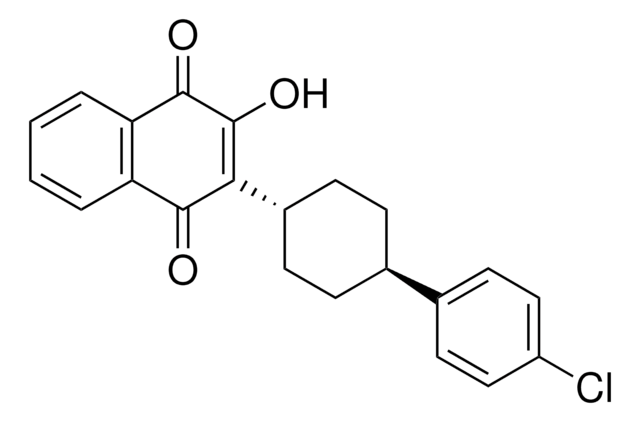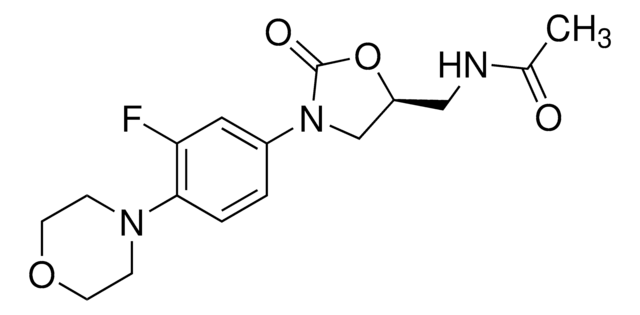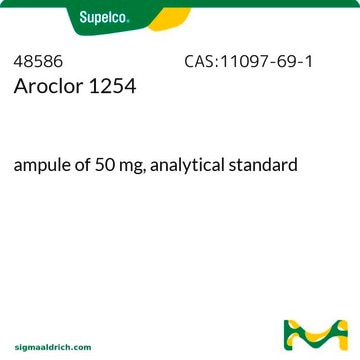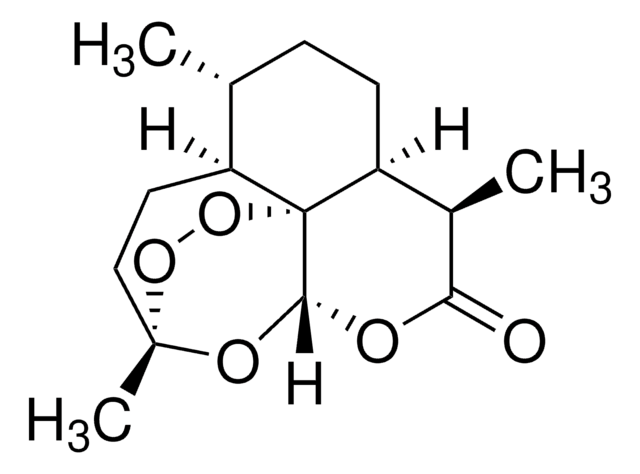1044651
USP
Atovaquone
United States Pharmacopeia (USP) Reference Standard
Synonym(s):
Mepron, trans-2-[4-(4-Chlorophenyl)cyclohexyl]-3-hydroxy-1,4-naphthalenedione
About This Item
Recommended Products
grade
pharmaceutical primary standard
API family
atovaquone
manufacturer/tradename
USP
application(s)
pharmaceutical (small molecule)
format
neat
storage temp.
2-8°C
SMILES string
OC1=C([C@H]2CC[C@@H](CC2)c3ccc(Cl)cc3)C(=O)c4ccccc4C1=O
InChI
1S/C22H19ClO3/c23-16-11-9-14(10-12-16)13-5-7-15(8-6-13)19-20(24)17-3-1-2-4-18(17)21(25)22(19)26/h1-4,9-13,15,26H,5-8H2/t13-,15-
InChI key
KUCQYCKVKVOKAY-CTYIDZIISA-N
Looking for similar products? Visit Product Comparison Guide
General description
Application
Biochem/physiol Actions
Analysis Note
Other Notes
Storage Class
11 - Combustible Solids
wgk_germany
WGK 3
flash_point_f
Not applicable
flash_point_c
Not applicable
Certificates of Analysis (COA)
Search for Certificates of Analysis (COA) by entering the products Lot/Batch Number. Lot and Batch Numbers can be found on a product’s label following the words ‘Lot’ or ‘Batch’.
Already Own This Product?
Find documentation for the products that you have recently purchased in the Document Library.
Our team of scientists has experience in all areas of research including Life Science, Material Science, Chemical Synthesis, Chromatography, Analytical and many others.
Contact Technical Service




